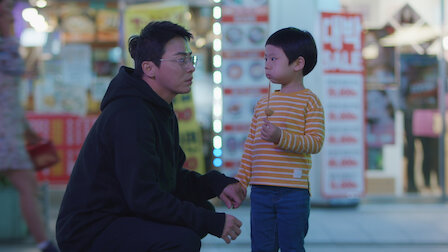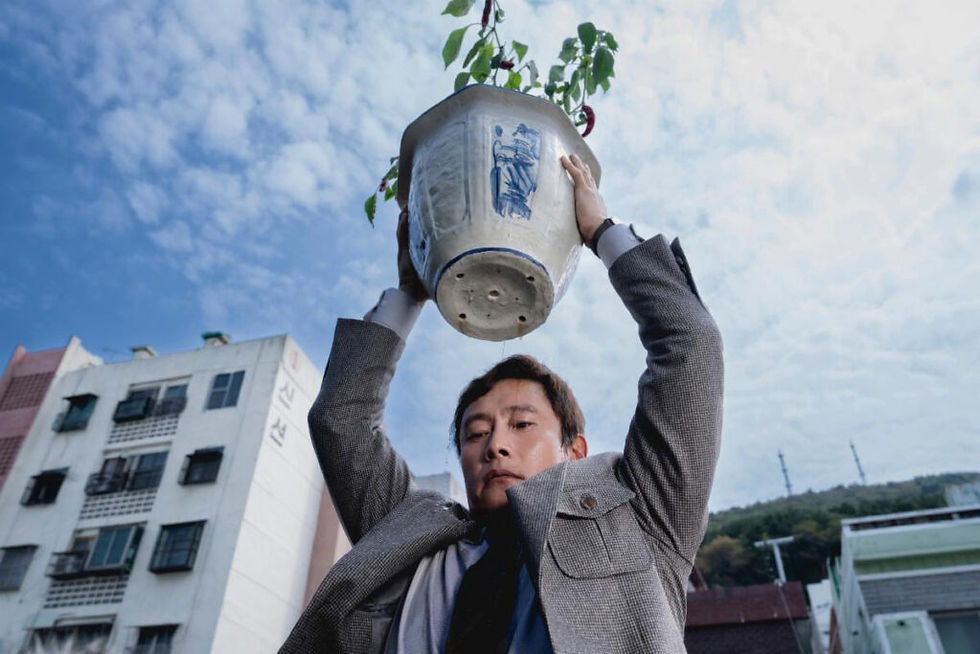Hospital Playlist: New Era for Kdramas
- Ing Jeungsmarn
- Nov 9, 2020
- 5 min read
Bright dreamy filters, iconic emotional ballads, slow motions with uncomfortable pauses, actors and actresses with insanely smooth skin and perfect facial features.
These are several key technical components of Kdramas that make it so distinct from other TV series genres.
Despite its prevailing fame in Asia since the 1960s all the way until this decade, Korean dramas don't change much. There are attempts to make storylines and character arcs more diverse. However, they still generally follow the same formula: the protagonist experiences a traumatic childhood (the most overused but still surprisingly effective premise being a wrongful death of a beloved parent or guardian) causing the protagonist to lead a life with a burning passion to avenge the said person's death. It eventually ends with the protagonist (with a little help from their romantic interest, of course) becoming the ‘bigger’ person, forgiving the ‘villain’ one way or another.
I might be over generalising, but for the most part, it is true. This formula persists throughout the decades of new Kdramas. We could compare a very OG Korean drama such as I can hear your voice to a more recent one such as Itaewon Class or What’s wrong with secretary Kim and guess what… all three Kdramas have protagonists with traumatic childhoods.



Traumatic childhoods can indeed be an interesting character arc, but when every Kdrama uses this narrative, executing it in the exact same manner with identical themes and messages, it can get a little cliché. The plot always revolves around the protagonist coming to terms with these painful memories through the help of their love interest. It’s almost like the writers didn’t care about the plot and wanted to solely focus on the romance between the protagonists... which, come to think of it, is probably the case.
After all, Kdramas originated from TV soap operas and are rarely ever hailed for their artistic boldness or value.
However, over time, viewers do begin to outgrow Kdramas. With the surge of quality films and TV series in this day and age especially from the West, viewers can become more critical of the simplicity of Kdrama plots and characters. Moreover, the representation of the romance itself can sometimes be problematic, contributing to perpetuating certain ideologies about gender domains, body image and unhealthy relationships. To accommodate viewers' changes in values and interest, Kdramas are expected to act fast and adapt.
After Netflix got involved in not only distributing existing Kdramas but also producing some as its originals, many would anticipate new changes to this well-loved genre.
Having a relatively varied display of both good and bad original productions, it is both exciting and nerve-racking to see what Netflix have to offer. Netflix’s contribution to the world of Kdrama had given birth to the beginning of what I would like to call the "new era of Kdramas". With evidently higher production values, more advanced cinematic directing, filming and editing techniques and noticeably more mature plot lines, I think Netflix has found a goldmine.



That was a long segue but today’s article will be about Hospital Playlist- a Korean drama released earlier in 2020 during the height of lockdown season about a group of doctors who are also high school friends. The series navigates through these doctors' professional and personal lives, giving us surprisingly informative knowledge and insight to the world of doctors whilst a peek into their adorable day-to-day drama. The series portrays the job of doctors in a very respectable light, but not failing to remind us of the tremendous workload, stress and hardship that comes with it. Exploring this profession is nothing new for Kdramas as seen in Doctor Stranger, Dr. Romantic or Doctors, but these series definitely glorify and simplify the work of these medics through over-using melodramatic situations and shying away from the more mundane, realistic but less tension-filled aspects of their work. They emphasise on power politics within the board of directors or revenging an evil doctor, which although these situations may exist in the real world, it captures only a very narrow picture of what it is like to be a doctor.

It is almost like the director is aware of the cliché portrayal of doctors in Kdramas, hence he toys with our expectations. The first episode teases us with the common trope of the good director of the hospital dying, and how the ‘villain’, an equally old and experienced doctor, will take over his role instead of the good son. It is later revealed that the son actually very willingly gave away this role to the old and experienced doctor and that this doctor is actually a very honourable man. From then on, the series subverts our expectations in many other ways, showing flaws in every character but also neatly justifying or having them promptly learn from it in a mature manner.

Much of the praise is owed to Director Shin Won-ho. As proven since Prison Playbook, he is able to deliver mature and realistic storylines along with romance without ridiculous melodramatic conflicts or backstories. Director Won-ho’s speciality seems to be constructing extremely likeable characters with believable flaws and attributes which somehow makes us fall deeper in love with the characters.
The flaws are often minor such as Song-Hwa’s bad singing, Jun-wan’s cold demeanour, Ik-jun being a single dad, Jeong-wan’s overly sensitive behaviour (disinterest in dating and allegiance to Christianity etc.) or Seok-jun’s antisocial tendencies. However, coming from an era of Kdramas where characters follow the same formulas of rich neglected billionaires, poor hard-working individuals with adorable clumsiness- I see it as a major improvement. As theories of attraction from Social Psychology suggest, one of the key attributes that foster attraction between individuals is the level of incompetence. We fall for people who occasionally blunders. Director Shin definitely nailed this down.
Moreover, in Hospital Playlist, it seems that we have moved past sappy teenage romances to the territory of adult relationships. This is very well reflected in Song-hwa and Ik-jun’s budding romance.
The season ended in true cliffhanger fashion as we do not get to hear Song-hwa’s answer to Ik-jun's confession. But whatever Song-hwa’s answer is, I am sure most of the viewers will gladly accept it. The series portrayed their relationship as an organic connection, rich with sincerity that stemmed from earnest care for one another. It was only after half of the season that we got a hint that there was a romance between Song-hwa and Ik-jun. The lack of focus takes us by surprise whilst heightening our appreciation and investment in the couple's romance. Because there was no expectation that they would end up together, we get to see their chemistry in the truest and purest form. Such honest romance and friendship precede the lack of cute couple scenes that this series lacked in comparison to their previous Kdrama counterparts. We can't wait to see how the romance and the series will unfold.






















Comments